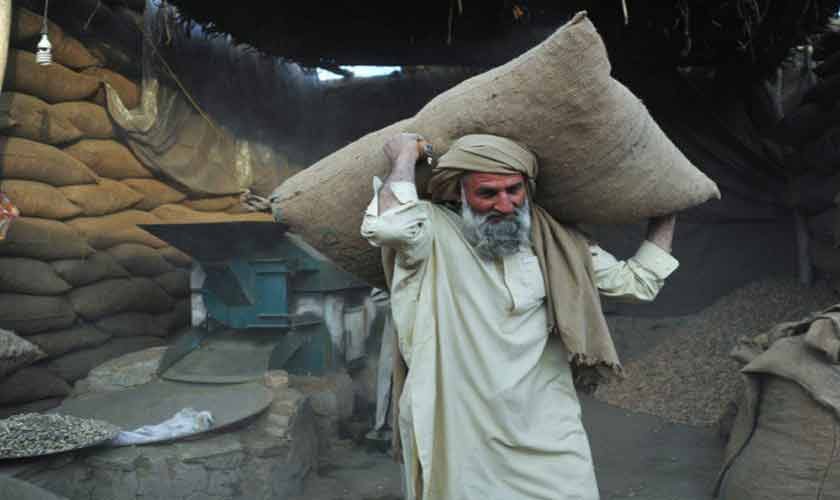Zafar Iqbal
The recent virtual rally held by the Pakistan Tehreek-e-Insaf (PTI) marks a pivotal moment in the country’s political landscape. In a landscape increasingly defined by digital connectivity and online engagement, the rally’s success, despite internet restrictions, highlights the transformative power of virtual gatherings and the ongoing struggle for digital access in Pakistan.
Pakistan’s burgeoning internet penetration, with millions of users actively engaging on platforms like Facebook, YouTube, and Twitter, offers a fertile ground for virtual political mobilization. This presents a new facet of accessibility, bypassing geographical constraints and potentially reaching a wider audience than traditional rallies. Gone are the days of mammoth crowds physically converging at a single location; now, a single connection to the internet suffices to participate in a national political event.
However, the reliance on a virtual platform exposes a glaring vulnerability: dependence on internet access. In a nation of 240 million people, where digital inequality persists, restrictions on internet freedom can severely undermine the democratic potential of virtual gatherings. As witnessed in the case of the PTI rally, such restrictions can be perceived as silencing dissent and stifling political participation.
The PTI, with its strong youth base who actively engage on social media, has demonstrably mastered the art of digital mobilization. This online connection with their supporters becomes even more crucial in the face of limitations on physical rallies. However, their supporters’ claim of a biased system working against them raises concerns about potential political manipulation and the need for fair play in the upcoming elections.
Amidst the heated political climate, with elections looming on the horizon, the question of unfettered access becomes paramount. Regardless of individual party loyalties, ensuring a level playing field for all political campaigns is crucial. The established legal framework, comprising the Election Act, 2017 and relevant regulations, must be upheld to guarantee equal opportunities for all.
Please, subscribe to the YouTube channel of republicpolicy.com
Ultimately, Pakistan’s path towards a true democracy hinges on embracing the principles of freedom of expression, political assembly, and, importantly, access to information. The internet, with its boundless potential for communication and mobilization, can be a powerful tool in furthering these values. However, ensuring equitable access and upholding the rule of law are indispensable prerequisites for harnessing this potential and shaping a truly inclusive and vibrant digital democracy in Pakistan.
The story of the PTI’s virtual rally transcends the realm of a single political event. It is a microcosm of the larger struggle for digital rights, political equality, and democratic ideals in a rapidly evolving Pakistan. As the nation navigates the complexities of this digital frontier, it must remain vigilant against any attempts to curtail online freedoms and work towards ensuring that the boundless potential of the internet serves to empower its citizens, not disenfranchise them.
Virtual rallies have become increasingly popular in recent years, especially in the wake of the COVID-19 pandemic. They are a form of political campaigning that is conducted online, using various digital platforms such as social media, video conferencing, and live streaming. Virtual rallies have several advantages over traditional rallies, such as being more accessible, cost-effective, and environmentally friendly. They also allow for greater reach and engagement with a wider audience, regardless of geographical location or time zone.
From a social perspective, virtual rallies can help to foster a sense of community and belonging among supporters of a political candidate or party. They can also provide a platform for people to express their views and opinions, and to connect with others who share similar interests and values. Virtual rallies can also be used to raise awareness about important social issues, such as human rights, climate change, and social justice.
From a cultural perspective, virtual rallies can help to promote cultural diversity and inclusivity, by providing a platform for people from different backgrounds and cultures to come together and share their experiences. They can also be used to celebrate cultural events and traditions, and to showcase the rich diversity of human culture.
From a political perspective, virtual rallies can be an effective tool for electioneering, by allowing political candidates and parties to reach a wider audience and to engage with voters in real-time. They can also be used to mobilize supporters, to raise funds, and to generate media coverage. Virtual rallies can also help to promote transparency and accountability in the political process, by providing a platform for candidates to share their policies and positions with the public.
From an electioneering perspective, virtual rallies can be used to target specific demographics and to tailor messages to different groups of voters. They can also be used to track and analyze voter behavior, and to identify trends and patterns in voting patterns. Virtual rallies can also be used to counter negative campaigning and to promote positive messaging.
From a democratic perspective, virtual rallies can help to promote democratic participation and engagement, by providing a platform for people to express their views and opinions, and to engage with the political process. They can also be used to promote transparency and accountability in the political process, by providing a platform for candidates to share their policies and positions with the public. Virtual rallies can also help to promote voter education and awareness, by providing information about the electoral process and the issues at stake.
Overall, virtual rallies have the potential to transform the way we engage with politics and to promote greater participation, transparency, and accountability in the political process. However, they also raise important questions about privacy, security, and the role of technology in shaping our political discourse and decision-making. It is important that we continue to critically examine the social, cultural, political, electioneering, and democratic perspectives of holding virtual rallies and to ensure that they are used in ways that are ethical, responsible, and beneficial to society as a whole. Therefore, it is critical that Pakistan embrace virtual rallies due to their effectiveness.
Please, subscribe to the monthly magazines of republicpolicy.com















